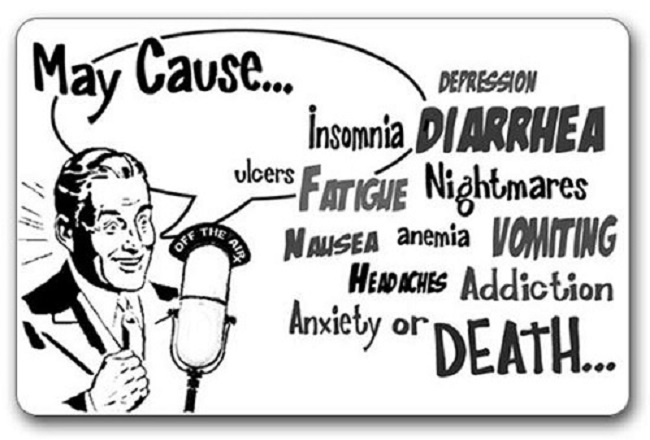I am 26 years old and living in Switzerland. I work in marketing. I currently weigh only 62kg (136lbs) even though I am 184 cm (6 ft) tall. Two years ago, I developed a small intestinal bacterial overgrowth (SIBO) infection suddenly after taking 20g of a probiotic called Perfect Pass Prebiotic. It contains partially hydrolyzed guar gum. I was also taking two lactobacillus probiotics per day during during the two months leading up to the SIBO. For the SIBO, I was treated with Atrantil and Xifaxan 4 times per day for two weeks. Antratil is an herb combination used to treat SIBO and Xifaxan (rifaximin) is a broad spectrum antibiotic. After these treatments, I developed an overgrowth of bilophilia and desulfurio bacteria. This has led to a severe sulfur intolerance. I have not found any treatment for this yet. Before developing SIBO, I used antihistamine (desloratadine, 5mg every day for two years) and Finacapil (finasteride) for the last 8 years, but I stopped taking it four months ago.
Since developing the SIBO, I have developed several food sensitivities including: oxalate, salicylate, and sulfur and histamine intolerances. I have lost 5kgs. I have also developed very high ammonia. That is my biggest issue. I had blood tests to confirm the high ammonia. It seems that I can only eat five foods without triggering a reaction: rice, chicken, carrots, fennel, and gluten free bread. When I eat anything else, I have almost all the symptoms possible. Before developing SIBO, I could eat anything. My diet was diverse and healthy.
Genetic Polymorphisms
I have since learned that I have several genetic polymorphisms which either upregulate or downregulate the activity of several enzymes involved in energy production and antioxidant processes. I have a fast cystathionine beta-synthase (CBS) enzyme, which may be at the root of my current problems. The CBS enzyme uses vitamin B6 to convert the amino acids homocysteine and serine into something called cystathionine, which then converts to cysteine and glutathione, a critical antioxidant pathway. Individuals with high CBS activity, end up with high levels of taurine and ammonia and lower levels of cystathionine and homocysteine, and importantly, lower levels of glutathione, making them more apt to suffer from infections and reactions to foods and medications. CBS upregulation also upsets the urea cycle, which means that I have problems with methylation.
If that were not bad enough, I have learned that I also have several SNPs that impact metabolism.
- FUT2 +/+
- GAD1 (2) +/- (1) +/+
- HFE H63D +/+
- MAT1A +/+
- CBS C699T +/-
- MTRR K350A +/-
- NOS3 (3) +/-
- PEMT (2) +/-
- BCMO1 (4) +/-
- AGXT +/-
- MTHFR +/+
- BHMT+/+
I have low homocysteine in blood, low lactic acid, high histamine, high bilirubin.
Nutrient Deficiencies
Nutrient testing shows that I have very low blood ceruloplasmin and copper but normal intracellular copper. Testing showed that I am also low in vitamins A, C, K2, manganese, selenium, magnesium, and low in vitamins B2, B3, B5, B9, and B12. Because I also have gastritis, sulfate reducing bacteria overgrowth and high ammonia, issues with sulphur, oxalates and salicylates etc., I don’t tolerate most oral supplements or things like natural vitamin C or beef liver. I also can’t tolerate methyl and sulfur vitamins and minerals.
I found a solution with IV multivitamin and mineral but it contained glycine and way too much chromium and iron and because of my hemochromatosis, it probably depleted my manganese, folate, etc. My manganese and folate concentrations are very low in blood. The IV was helping me a lot first but the ammonia issue began to be way too high and as did the blood chromium, so I stopped. The IV had all the vitamins and minerals, plus glycine and phosphatidylcholine.
I had an ADK supplement with 5000UI Vitamin A, 5000UI Vitamin D, and 600mg Vitamin K2, MK7 synthetic and it was helping a lot with the ammonia but gave me bad oxalate burning bladder. Manganese helped a lot, but since I don’t have enough vitamin C, my CYP7A1 enzyme, which manganese triggers, is not working well. The CYP7A1 enzyme converts cholesterol into bile acid. As a result of the manganese supplement, I developed cholestasis, but when I take vitamin C, which is the missing piece here, I get oxalate issues. It seems that I cannot win. The manganese may cause a loss of choline or glycine but both contain ammonia and sulfur, so I can’t take it.
I did tolerate the vitamin C in the IV mix, though. It could have been because it came with the other B vitamins. This leads me to believe that perhaps I can tolerate transdermal vitamins or another formulation of the IV nutrients.
I know that I need thiamine (vitamin B1) but I have normal TPP in blood and when I tried to take it in HCL, mononitrate, TPP even at 1 mg, it gave me the sulfur issue and high ammonia. More recently, I had an organic acid test (OAT). It showed that I have low vitamin B6 in urine test, but it was high in the blood, I have very high inorganic phosphate in blood, normal magnesium in blood but low intracellular magnesium. Both probably are caused by too much iron. I really need vitamin C, but because of oxalate issue I cannot take it, and if I take vitamin B6, it will further upregulate my CBS and produce more sulfite, sulfate, ammonia, and hydrogen sulfide.
I should note that I always have gallbladder pain, and flow issue, and I can’t digest fat, but all gallbladder supplements that contain sulfur give me issues. So I don’t know how to take manganese without cholestasis, vitamin c without oxalate issue and B1 without sulfur issue and folinic acid without glutamate issue. I have run out of idea to cure myself. If anyone can help, it would be great!
We Need Your Help
More people than ever are reading Hormones Matter, a testament to the need for independent voices in health and medicine. We are not funded and accept limited advertising. Unlike many health sites, we don’t force you to purchase a subscription. We believe health information should be open to all. If you read Hormones Matter, like it, please help support it. Contribute now.
Yes, I would like to support Hormones Matter.
Share Your Story
If you have a experienced ill effects relative to finasteride or any other medication, share your story with us.
Image by Rudy and Peter Skitterians from Pixabay.













